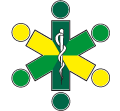Engaging with Local BME and Faith Communities
Tips and Hints
- Be clear about what the engagement is trying to achieve and what you will do following the activity/event
- Research local community groups in your area work with them, service users and organisations in the planning and delivery of any activities or events. They will keep you right and help you promote your event, for example:
- Faith groups
- Church, mosques, temples, etc
- Interfaith forums
- Diversity groups
- Cultural and ethnic support groups
- Community associations
- Link with schools, colleges and universities
- Be aware of cultural and faith events, You may be able to link with existing activities celebrating events or you may need to ensure any engagement doesn’t clash with significant events and stop people from attending.
- Don’t classify BME groups together and expect all BME people to come together. Many groups have different needs and may not wish to meet with other groups. Consider cultural sensitivities, community tensions may exist with different groups, you may need to hold separate sessions for men and women and contact between men and women in some cultures and religions can make be difficult and may impact on attendance.
- Try to have representation from BME people in your workforce at events and activities. This can help to attract people to your stall, support with language needs and overcome barriers.
- Consider offering culturally appropriate food. Remember to consider the dietary requirements of your audience, labelling food types, keep any meat dishes separate from vegetable based dishes and consider using a local supplier
- Have language support available at your event. This could be facilitated by booking one or more interpreters if the event is targeted at a couple of groups with specific language needs, ensuring staff have access to telephone interpreting or using existing staff with language skills.
- Develop posters, leaflets and communication in community languages, work with local communities to distribute through local shops, community centres and faith establishments.
- Ensure you are able to pay for expenses. Make sure you reimburse bus travel, explore crèche facilities depending on your audience and you may need to consider train and taxi costs for disabled people and individuals who may live further away or on indirect bus routes .
- Always try to hold events and activities in local communities. You can’t expect people to travel long distances to speak to you about your plans and needs. You need to make engagement accessible to them.
- Consider that some people may not be able to access surveys electronically or paper based and this may not be the most effective way of collecting data due to language needs.
- Use any internal BME staff networks or groups or talk to your BME staff to see if they can advise or help you.
- Time keeping, consider that people from different backgrounds and culture view time and time keeping differently. Build this into you planning for the day. Consider that some people may arrive after your advertised start time and building this into your plans for your session.
- Avoid making assumptions that everyone from a particular faith or culture is a certain way or has a certain preference, if you’re not sure, ask.
- Ensure staff that are supporting the event have had some cultural competency training and have some awareness, if someone gets it wrong apologies and move on, don’t dwell.
- Feedback to the people that have got involved, collect email addresses, hold a follow up event, etc.
- Keep any information clear and free from jargon and acronyms
- Develop a long term approach to engagement, connect and build relationships with existing networks, groups and faith establishments.
- Avoid having meetings where alcohol is consumed, for example a pub, hotel with a bar or function room.
